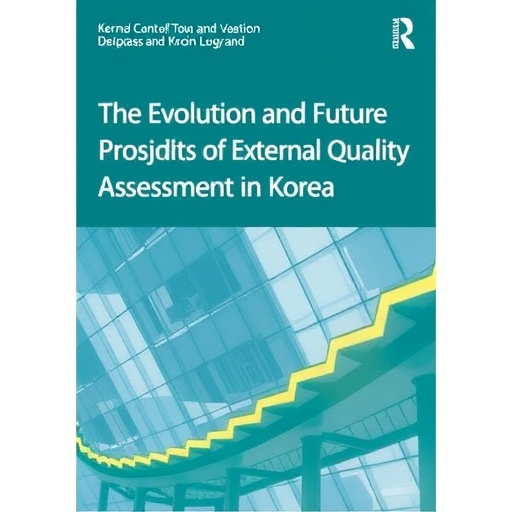Over the past five decades, external quality assessment (EQA) has become a cornerstone in the realm of clinical laboratory testing, ensuring the reliability, accuracy, and comparability of diagnostic results worldwide. In the Republic of Korea, this critical function has been championed and meticulously developed by the Korean Association of External Quality Assessment Service (KAEQAS). Since its inception in 1976, KAEQAS has transformed from a modest clinical chemistry quality program into an expansive, multifaceted system encompassing over ninety schemes across a wide spectrum of laboratory disciplines. This evolution reflects not just growth in scale but also a deepening commitment to integrating international standards and leveraging technological advances to heighten the quality and safety of patient care.
At its core, KAEQAS exemplifies how a national EQA body can foster rigorous quality control and standardization in laboratory medicine. One of the pivotal junctures in its historical trajectory was attaining accreditation under the ISO 17043 standard. This accreditation validates KAEQAS’s competency in proficiency testing, assuring stakeholders of the program’s reliability and adherence to globally recognized quality benchmarks. With this endorsement, KAEQAS solidified its role as a credible and authoritative entity that supports laboratories in achieving consistently accurate analytical performance.
Technological innovation has played a decisive role in propelling KAEQAS forward. The development and implementation of next-generation computerized testing systems have revolutionized how proficiency testing data is collected, analyzed, and reported. These modernized platforms not only streamline operational workflows but also enable rapid peer-group comparison and facilitate sophisticated statistical analyses. By deploying such advanced informatics solutions, KAEQAS provides laboratories with actionable insights that stimulate continuous quality improvement and encourage adherence to best practices.
The scope of KAEQAS’s programs extends well beyond traditional clinical chemistry. Today, the association covers diverse laboratory disciplines, including hematology, microbiology, molecular diagnostics, and accuracy-based proficiency testing. This broad inclusion mirrors the complex, multidisciplinary nature of contemporary diagnostic medicine. Accuracy-based proficiency testing, in particular, has gained prominence due to its emphasis on metrological traceability and the use of commutable reference materials. Such approaches contribute to reducing inter-laboratory variability and enhance the harmonization of test results on a national and international scale.
Despite these advances, several systemic challenges persist within the Korean EQA landscape. Participation in KAEQAS programs remains voluntary for many healthcare institutions, which has resulted in uneven representation, particularly among smaller clinics and long-term care facilities. This discrepancy undermines the universal quality assurance framework that is essential for safeguarding public health. Addressing this issue requires policy interventions aimed at mandating wider participation and fostering an inclusive quality culture across all tiers of healthcare providers.
Moreover, improving the standardization of testing methods continues to be a significant hurdle. Specialized analytes and emerging biomarkers often lack fully developed category 1 accuracy-based programs, which are essential for traceable and commutable proficiency testing. Expanding the number and scope of these high-accuracy programs is critical to closing existing gaps and ensuring robust quality assurance for increasingly complex diagnostic assays. Enhancing method standardization will also facilitate comparability and interoperability of laboratory data, which is vital for clinical decision-making and epidemiological surveillance.
From an informatics standpoint, while computerization has undoubtedly advanced KAEQAS’s operational efficiency, limitations remain in deploying real-time analytics and fully automated reporting systems. The integration of real-time data processing and dynamic analytics could empower laboratories with immediate feedback on assay performance, enabling timely corrective actions. Furthermore, establishing a comprehensive specimen bank would support the development and validation of new EQA schemes, strengthen reference material availability, and promote long-term quality monitoring.
Looking toward the future, regulatory reforms will be essential in amplifying KAEQAS’s impact and addressing existing shortcomings. Formalizing mandatory participation across all healthcare institutions will establish a more equitable and representative quality assurance network. Regulatory alignment with international standards and participation in global harmonization initiatives will further position KAEQAS as a leader in the regional and global laboratory community. These steps are vital to ensuring consistent test performance that upholds patient safety and clinical reliability.
Technological innovation will additionally shape the path forward. The advent of artificial intelligence and machine learning holds promise in enhancing data analytics, pattern recognition, and predictive quality control in EQA programs. Integrating such technologies can elevate proficiency testing from mere performance assessment toward predictive quality management, anticipating errors before they impact patient results. Moreover, expanding digital interoperability among laboratories, regulatory agencies, and EQA bodies will facilitate seamless data exchange and contribute to more agile and responsive quality systems.
Public health collaborations also constitute an important dimension of KAEQAS’s evolving role. By aligning proficiency testing programs with national health objectives and disease surveillance efforts, KAEQAS can contribute substantially to outbreak management, antimicrobial resistance monitoring, and diagnostic preparedness. Such integrative approaches leverage the inherent strengths of standardized laboratory networks to bolster the resilience and responsiveness of healthcare systems in times of crisis.
In reflection, the Korean Association of External Quality Assessment Service stands as a testament to how sustained commitment toward quality and innovation can transform clinical laboratory services. Its trajectory underscores the importance of combining rigorous accreditation, comprehensive program coverage, and technological modernization to meet the evolving demands of precision medicine. As Korea continues to expand and refine its EQA infrastructure, it offers a compelling model for other nations striving to enhance diagnostic reliability and elevate patient care standards globally.
Ultimately, the future of external quality assessment in the Republic of Korea hinges on synergistic advances in regulation, technology, and inclusivity. Embracing mandatory participation, expanding accuracy-based proficiency programs, and investing in advanced informatics will empower KAEQAS to maintain its prominent leadership role. In doing so, the association will ensure that laboratories nationwide can deliver timely, precise, and standardized diagnostic information—an indispensable foundation for effective healthcare delivery in the twenty-first century.
Subject of Research: External Quality Assessment programs and their development in the Republic of Korea.
Article Title: Current status and future prospects of external quality assessment (EQA) in the Republic of Korea
News Publication Date: 29-Aug-2025
Web References: http://dx.doi.org/10.1016/j.lmd.2025.100093
Image Credits: Junghan Song, Yeo-Min Yun, Young Kyung Lee.
Keywords: Clinical research




